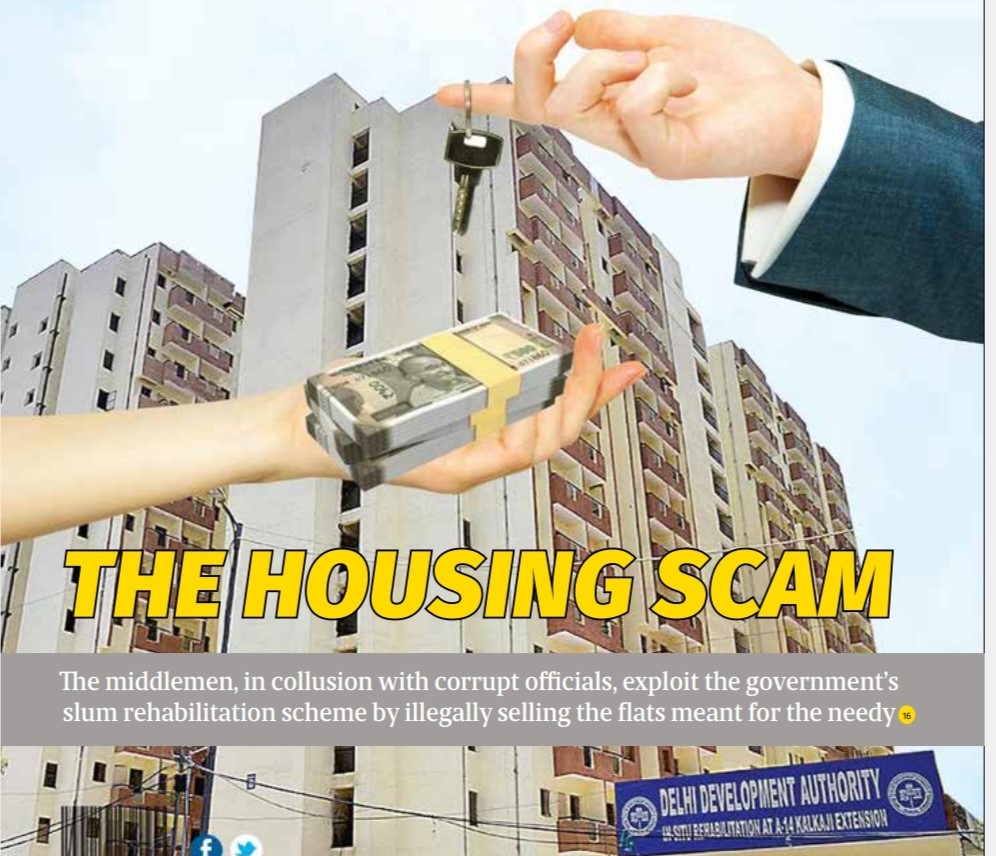
The Delhi Development Authority (DDA) has found itself at the center of controversy once again, accused of turning a blind eye as housing units designated for the city’s poorest are misappropriated by the wealthy. The scheme in question, inaugurated by Prime Minister Narendra Modi on November 2, 2022, promised over 3,000 flats in Kalkaji Extension as part of the DDA’s “in situ slum rehabilitation project.” Yet, despite the high-profile launch, many residents from Bhoomiheen, Navjeevan, and Jawahar Camps remain without homes.
Tehelka’s Special Investigation Team has exposed a troubling pattern of corruption involving middlemen and unscrupulous officials. These individuals have exploited the system, illegally selling flats intended for the underprivileged to affluent buyers. Our cover story, “The Housing Scam,” reveals how the ambitious scheme has failed, leaving many of the most vulnerable still facing harsh living conditions — exposed to severe winters, sweltering summers, and relentless rains.
According to HUDCO’s guidelines on Affordable Housing, a dwelling should cost no more than five times a household’s annual income, with monthly rent or EMI capped at 30 percent of gross monthly income. The DDA’s initiative was designed with these principles in mind, but just two years after the PM’s inauguration, fraudsters have hijacked the project. Flats, initially priced at a subsidized Rs 1.24 lakh each, are being resold to the wealthy through fraudulent means.
Our investigation uncovered that these 25-square-meter flats in 14-story high-rises, which were never meant for sale, were provided to beneficiaries for only Rs 1.24 lakh each, with the remaining cost covered by the DDA. However, middlemen allegedly sell the flats to affluent buyers — most of whom already own homes in Delhi — using fake slum addresses. One middleman, recorded on hidden camera, proudly declared, “These flats are for slum dwellers, but I’ll create documents to show you lived in a slum before 2005. The government won’t check, so it will be undetectable.” Another admitted to selling ten such flats to wealthy clients through fabricated documents, including the “Red Paper,” a government-issued document that falsely certifies eligibility for the flats.
Activists argue that the Delhi government’s inaction is due to the issue being considered a “Centre’s subject,” but this cannot be an excuse for inaction. The DDA must step up, enforce stringent regulations, and ensure accountability to bridge the gap between the project’s lofty promises and its flawed execution. Immediate intervention is crucial to prevent further exploitation and to provide the justice that the city’s most vulnerable residents desperately deserve. It seems that the government has its heart at the right place given an extension of the Pradhan Mantri Awas Yojana-Urban (PMAY-U) till December 2024 but existing loopholes in providing a roof over the heads of the poorest of the poor must be removed. It’s time to bridge the gaps between a utopian idea and its fructification.












